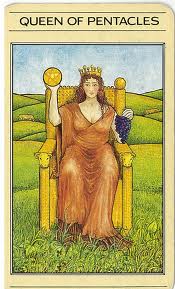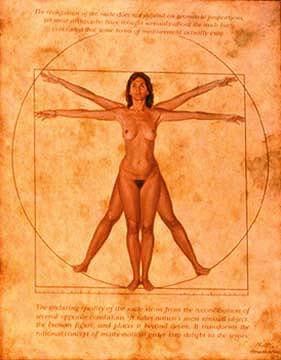 Warning, I don’t get to England in this installment, but bear with me.)
Warning, I don’t get to England in this installment, but bear with me.)
I don’t usually start writing anything by coming up with a title, but today I am picking my title (Dream Come True) and sticking with it. Corny, sentimental, trite… yeah yeah yeah. But it just so happens to be true in this particular case.
Looking back at my ENTIRE ADULT LIFE, during which I wanted one thing – to travel –I wonder what kept me home? Well, I have a pretty good idea. I got sucked into the poverty mentality that so imbued my family of origin and then my family of choice. I also gave up all control over my own decisions, in some really strange ways that no one casually looking on would have realized since I seemed so strong, determined, and “together.” (Refer to my last blog!) But I viewed partnership as a non-negotiable situation where every decision I made had to be “approved of” by my spouse. Not the little decisions like what color to paint the bathroom (he didn’t care) or what to make for dinner (he liked everything), but anything that was about me and for me. (We were lucky that we saw eye to eye about virtually all child-related decisions.) This was a collaborative delusion, but I take most of the responsibility for imposing that insane stricture upon myself.
I also did not have financial autonomy. I mean you never really do if you are splitting the bills with someone. But outside the running of our lives, it wasn’t till I was 25 years into the marriage that it occurred to me to have my own savings account. And now that I have my own everything account, I am truly liberated. No matter what comes my way in life, I will never, ever have a joint bank account again. With anyone. For any reason.
So, when my daughter was about to head off to England for a semester, suddenly my lifelong “wanting to go to England” became a very real “going to Europe.” To visit her during her semester abroad experience became the most normal of expectations, and her father Dan and I planned to take the trip together in mid-April.
Prior to flying, my body decided to see just how determined and tough I actually am. I came down with an epic, unprecedented flu. We’re talking 102+ fevers daily, body aches, wracking cough, and orders from the doctor: “don’t mess around, go to bed, and don’t get up until further notice.” He knew I was flying five days later. Four days later, he called. That means he was concerned. He’s been my doctor for 24 years and I’ve never actually seen him concerned before. (Except the time he had to put my son in the hospital for croup but that’s another story.)
The day of my flight, I had to head to JFK on my own with all the luggage because Dan was going to be making it totally last minute after work as he got a ride to the airport during rush hour traffic. I spent the car/bus/train/bus ride from my house, into the city, and out to JFK having a violent reaction to my codeine cough medicine… in the form of uncontrollable vomiting. Ever so fun while in a car. And bus. And train. My primary thought for much of that journey was: “Can someone shoot me now?”
Yes, body, universe, anyone who is paying attention: I’M VERY TOUGH, VERY STUBBORN, and at that particular point in time, VERY DETERMINED TO GET TO ENGLAND.
I finally arrived at JFK, dragging a suitcase, my shoulders dangling with various bags, terminal 4 – Virgin Atlantic. (I’ve never understood why so many airlines have the word virgin in their names—is there something about a virgin that makes us feel we’re in good hands as we hurtle through the air 30,000 feet above the earth? What?) Trying not to cough and give myself away, literally bent over with exhaustion (it was now 3:30 p.m. and I got out of bed for the first time in 5 days 7 long hours ago), I dragged myself to the counter and the charming, red-clad, smiling Virgin Atlantic employee. She looked at my passport and heard me tell her “flight 45” and said, “Oh, I’m so sorry. That plane is still grounded in London and we are not sure when, or if, it will take off today.”
I did not really hear her, because I was trying to focus on taking my next breath. “What?” I asked.
She went on: “If it doesn’t take off by 1:30, we’ll cancel it and put you up in a local hotel.”
“1:30 AM?” I asked, confused. And HORRIFIED.
“Yes.”
“Can I at least give you my bag?” At that point getting rid of that bag was all I could think about. The idea of schlepping the huge suitcase around JFK terminal 4 all afternoon and evening made me want to lie down on the floor and doze off on the spot.
“You may need it if….”
“No. I won’t. I have what I need in here.” I wiggled the shoulder from which dangled my carry on, replete with contact solution, glasses, toothbrush, pair of clean underwear and a few other necessaries. And a book.
I ditched the suitcase – I mean checked it, then sat in the supremely noisy, uncomfortable arrivals waiting room for an hour and a half until she would be able to tell me more. I literally slept in an upright position, arms twined in knots among the various straps of my bags. Nowhere to lean my head, nowhere to put my bags, I became a marble statue of exhaustion. Every 15 minutes or so I cracked open one eye to peer at the wall clock and see the time inching forward. If only, I thought, the next time I look an hour will have passed. Never happened.
Finally it was time to visit my cherry-red pal at the counter. “Good news!” she said when she saw me. (She remembered me. Pretty impressive, but I am sure I was memorable to her for how AWFUL I looked and how PATHETIC I was.)
Skeptical, I asked, “What is it?”
“The flight is in the air from London and we anticipate it will turn around by 1:00 a.m. at the latest.” (7 hours late.)
At this point I’d have been grateful for a crappy airport hotel to just lie down in, but realizing I’d still get to England at some point on Saturday after all perked me up a bit. I headed to the gate, at last, and called Dan. He was en route, and we both realized that had we known all this in time I could have just driven down with him. Oh well.
Eventually 1:00 a.m. became 9:30 p.m. They had the super awesome idea of using a different plane, instead of waiting for the one coming from England. We were impressed with this strategic thinking that got a shit-ton of frustrated, exhausted travelers out of the terminal and into the air.
Dan arrived, we ate a highly unsatisfactory meal served by incompetent servers at a JFK version of an Irish pub. I removed my contact lenses, bought a pillow from Hudson News, and we waited. Boarded. Settled (in different rows). Slept.
Next thing I knew I was being served truly delicious tea – yes, on an airplane – and that’s when I knew for sure I was headed for England. I opened the shade next to my seat and saw the dawn flooding through it. Grainy eyed, stiff, pretty much beaten-up by a helluva 24 hours, I smiled. This was joy, for sure.
To be continued.



![LoveStory poster_thumb[2] (2)](https://spiralwoman.com/wp-content/uploads/2014/02/lovestory-poster_thumb2-2.jpg?w=222)






